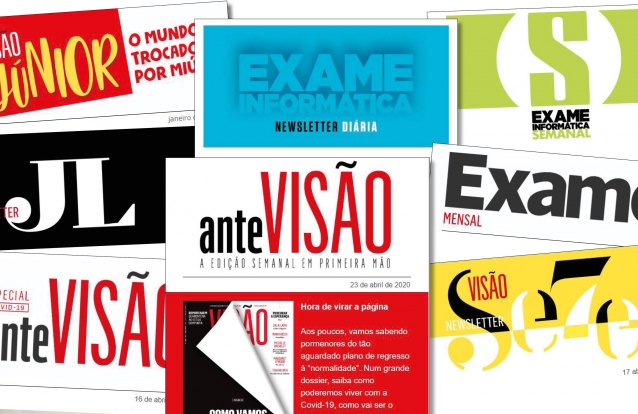The first signs of the “illness” appeared (as always) with the delay in paying workers’ salaries and the failure to fulfill other payments for the cooperation necessary for the work of the publishing company. “Since November last year, salaries have been delayed for employees, and employees were already suffering from the delay. Over the past three months, we have reached an unbearable point where many of us received salaries more than a month later. At the moment, there are managers who have not yet received their salaries, and no one has yet received their June salaries, meal allowances for May and June, and vacation allowances,” a journalist at one of the group’s publications, who preferred to remain anonymous, lamented.
Now, with the Special Application and Activation (PER) in progress, the Jornal de Negócios is moving forward with a number: TIN. Its total debts amount to 32.252 million euros, 17 of which are owed to the state. “Looking seriously and empirically, I wonder what future could be for the titles that make up the TIN. The only solution that seems viable is to sell the titles that represent the major brands on the market. This measure could bring money to the company, but above all it could save the magazines and, ultimately, their employees,” he concludes.
This story would be (almost) unbelievable if it were isolated. However, it is not. In fact, TIN is not the first publisher to suffer a serious financial crisis. In recent years, major publishing groups in Portugal have begun to collapse. All with incredibly similar stories.
In March 2016, after 27 years of publication, the last paper edition of “Diário Económico” was published. The news was published in the online version of the newspaper and on the television channel. However, the “sunshine” was short-lived. In September and October of the same year, respectively, they were closed. The owner of the newspaper, owned by a continuing group, which was already in a special revitalization process (PER), asked the court to convert the process into insolvency. And that is what happened. All the workers were left without work. There is no compensation or work credits.
November 3, 2020. Discoverer Press, a subsidiary of the Impala Group, which owns magazines such as Nova Gente, Maria and TV7Dias, is laying off 50 people en masse. The reason: weak print sales due to the pandemic. At this time, according to one of the four performance criteria to which the company was subject, its total debt was 42.5 million euros. The workers were dismissed without receiving the wages due to them at the time of their dismissal, as well as their work credits and compensation for the years worked. “It all started with delayed wages,” recalls a former employee of the group (who prefers to remain anonymous) who held a management position. “There was everything. There was never the slightest humility or respect for the workers who were responsible for even the catastrophic financial situation of the company. We were always asked to “put on the vest.” The money did not arrive, or arrived late, and the work tripled. Four years have passed and everything remains the same. Impunity reigns. There are no authorities capable of stopping such a scourge. More than 50 people were left unemployed, without a single cent. The company continued to work. I still hope to receive what I am owed, but I know that it will take some time. After two years of mass dismissals, the company went into bankruptcy. However, the magazines continue to appear.
The most popular case, and perhaps the one that generated the most public interest, occurred a few months ago, at the end of 2023, at Global Media Group (GMG).
The company was bought for $300 million in 2005, then sold its headquarters to the newspaper, laid off five employees en masse and met with several shareholders until it reached a mysterious owner who had no money to pay salaries. Cases of non-compliance by workers and collaborators have occurred, and the situation is far from resolved. Currently, more than a hundred GMG employees, suppliers, journalists, photographers and historians are due to receive their April, May and June salaries without any guarantee that they will receive them. “They say they will pay us after the sale. There is an expectation that they will, but there are no guarantees,” says one employee who is in this situation. The hope is in a new business: the sale of the Jornal de Notícias magazine, TSF radio and O Jogo newspaper. With bills to pay and food to buy, many workers, who have families and entire homes to support themselves, find it difficult to continue working without money.

“Wannabe internet buff. Future teen idol. Hardcore zombie guru. Gamer. Avid creator. Entrepreneur. Bacon ninja.”

